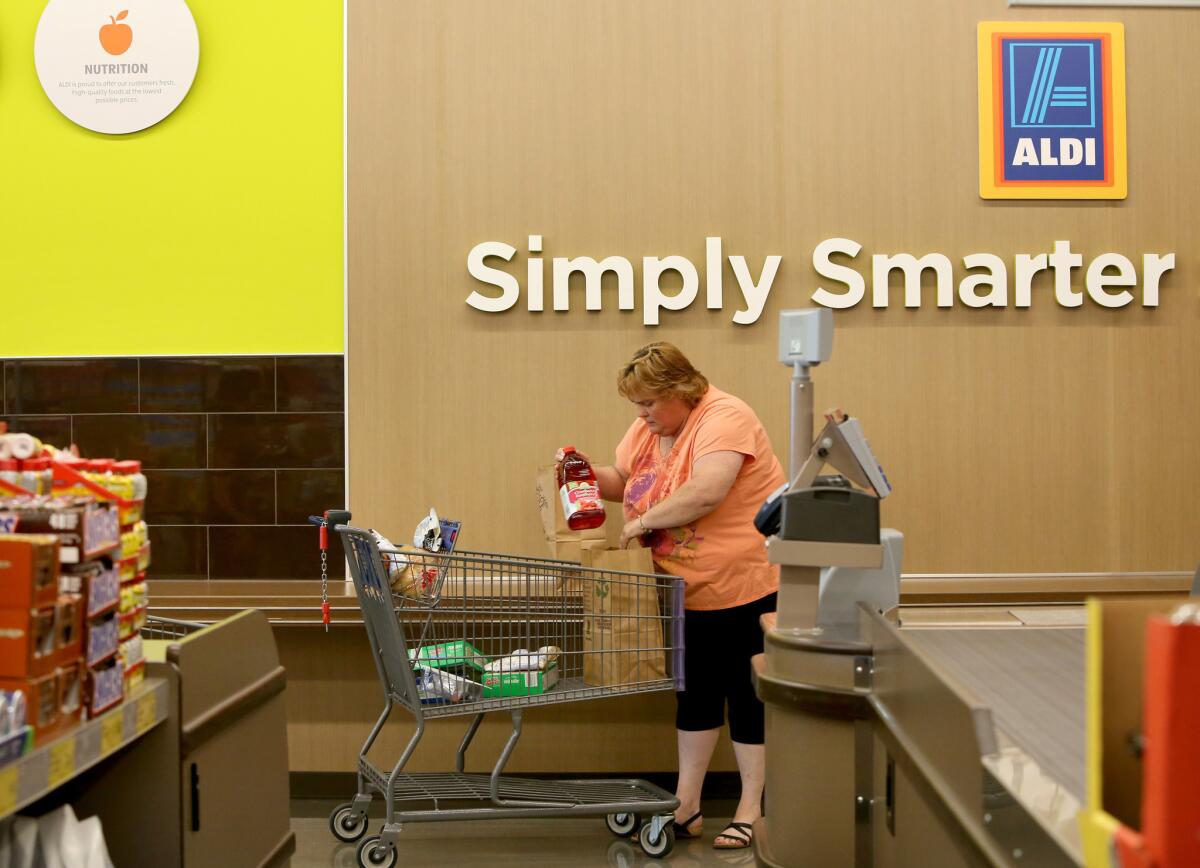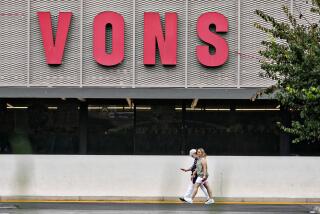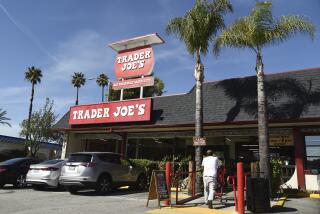Aldi to open first eight Southland stores on March 24

Shopper Patti Gerstenbeger bags her own groceries at the Aldi store in Niles, Ill., on Wednesday, June 10, 2015. Aldi is opening its first eight stores in Southern California on March 24.
German discount grocer Aldi is opening eight stores on March 24 in Southern California, the first of 45 stores in the region this year.
The eight stores are clustered near the company’s regional distribution center in Moreno Valley. They are located in Palm Springs, San Bernardino, Yucaipa, Lake Elsinore, La Quinta, Fontana, Beaumont and Moreno Valley.
Gordon Nesbit, vice president for Aldi’s Moreno Valley division, said the chain will bring quality products at low prices to the area.
“The driving impetus to coming here is there’s a huge population base not being currently served by Aldi,” Nesbit said, adding that he’s been in the region for over three years to plan for the grocer’s entrance into Southern California.
After the initial batch of stores, 19 additional grocers are scheduled to open between April and July. Locations include Covina, Inglewood, Simi Valley, South Gate and Bakersfield.
Each store will employ about 19 workers, Nesbit said, and the distribution center has about 100 employees. Aldi will employ about 1,100 people in Southern California by the end of 2016, he said.
Nesbit said employees and advertising will help educate consumers on the Aldi way of doing business, which is different from stalwarts such as Vons and Ralphs.
The stores are more on par with drugstores at about 10,000 square feet, compared with a standard grocery store, which can be 50,000 square feet or more.
SIGN UP for the free California Inc. business newsletter >>
More than 90% of items for sale are Aldi’s private label, and stores typically carry only one or two options for each category: peanut butter or canned green beans, for example. That allows Aldi to get big discounts for buying huge volumes, passing on savings of 20% to 40% on most products to shoppers, analysts said.
The shopping experience also is pared down.
Shoppers must pack their own groceries. Best-selling products often are left on shipping palettes instead of stocked on shelves. Customers who use shopping carts also must deposit a quarter, which they get back once the cart is returned. That cuts down on thefts and saves on workers needed to collect carts scattered throughout the parking lots.
“It’s a value proposition that the Southern California customer hasn’t seen before,” Nesbit said.
Follow Shan Li on Twitter @ByShanLi.
MORE FROM BUSINESS
Airfares just got more expensive, and it’s the third price jump this year
Bill Gates on Apple-FBI fight: ‘Government shouldn’t have to be completely blind’
Why do conservatives keep saying Seattle’s minimum wage hike has failed -- without data?
More to Read
Inside the business of entertainment
The Wide Shot brings you news, analysis and insights on everything from streaming wars to production — and what it all means for the future.
You may occasionally receive promotional content from the Los Angeles Times.











